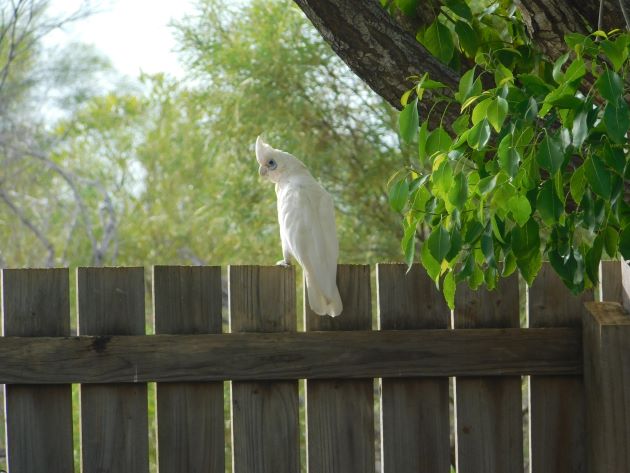
There are large flocks of Little Corellas in Broome that relocate both morning and evening. They mostly fly over the native bush out the back of our property, but when the native trees are in seed they land. The Little Corellas crunch away at the seeds and continue on their journey. Every now and then we have a pair of Little Corellas land in our garden where there are also native plants and a reliable source of water all year round. We also have a pretend power line for the birds, because most of our power supply is underground in Broome due to living in a region where cyclones are part of life for a few months each year.
Over the past week the pair of Little Corellas have been regular visitors both morning and evening. They have no doubt been watching the Double-barred Finch and Bar-shouldered Doves coming in for food! At first the Little Corellas were quite cautious. One of the birds balanced on the fence for some time watching the other birds in the garden and the other stood in our Billygoat Plum tree.
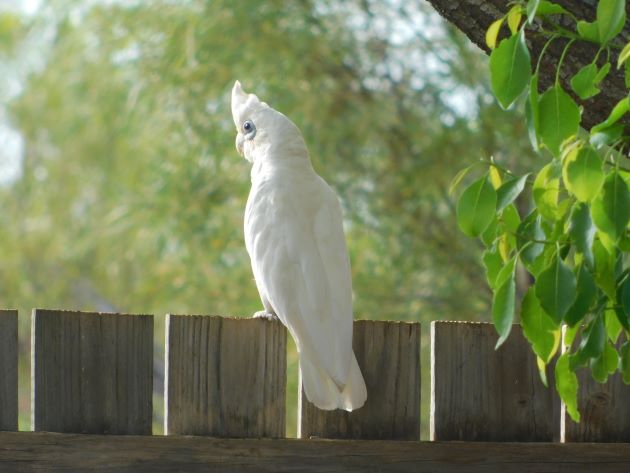

Little Corellas
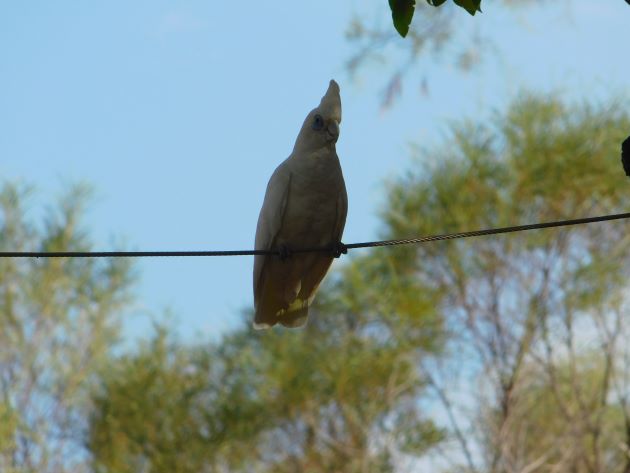
Balanced on the pretend power line above the fence
There were several Double-barred Finch and Bar-shouldered Doves already feeding on the rock. As soon as the Little Corellas dropped down they moved off to wait. Despite the word “little” the Corellas are large birds compared to others that visit our garden apart from the Pheasant Coucal.
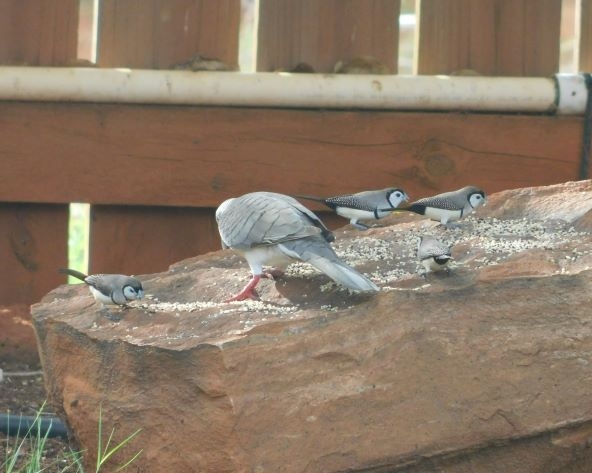
Double-barred Finch and a Bar-shouldered Dove for size comparison on the same rock
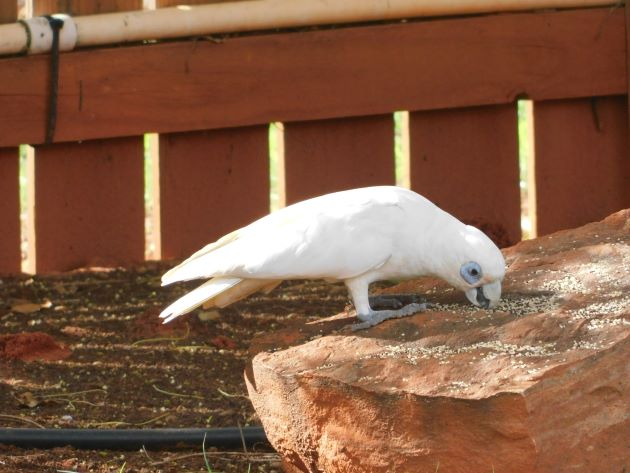
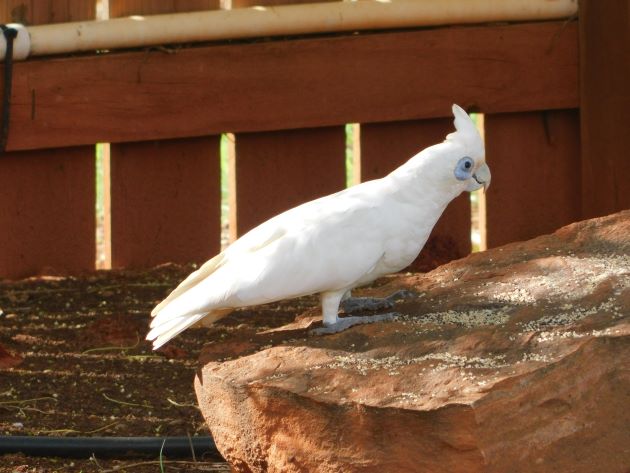
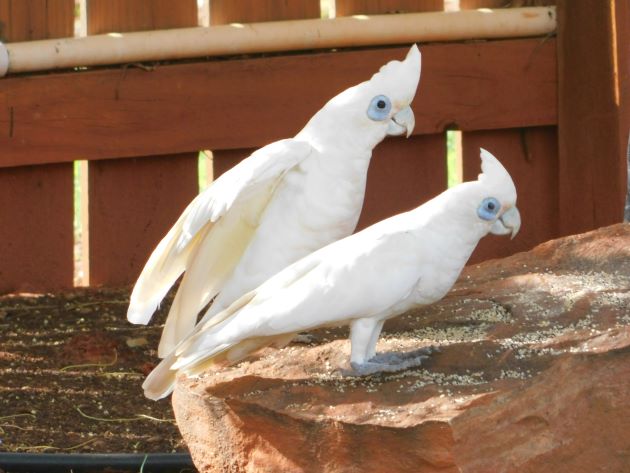
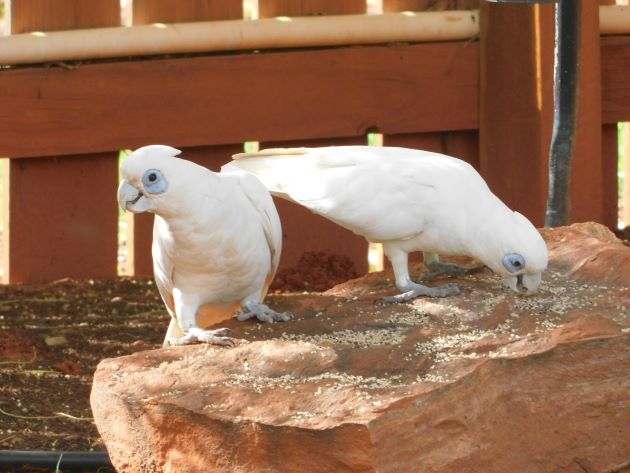
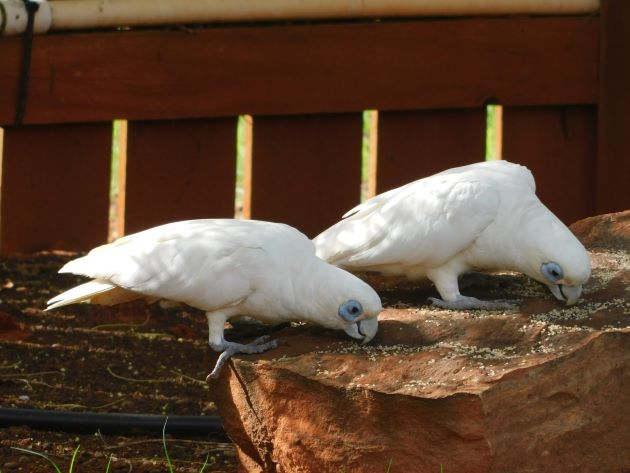
Little Corellas feeding
It didn’t take the Little Corellas long to finish off the food that they were interested in and then make a typical vocal departure. The Little Corellas are very agile and can often be observed using their feet to feed like the Gang-gang Cockatoos do.
We don’t mind at all that this pair of Little Corellas are dropping by mornings and evenings at the moment. We have camped in beautiful locations beside a water body and the noise of hundreds of Little Corellas is just too much, though! Flocks of Little Corellas can be in their thousands, so to mention they are vocal is an understatement!






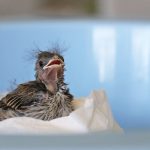
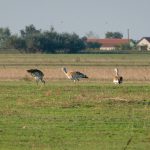



How wonderful! They are amazing birds, but the noise of thousands could be a bit much.